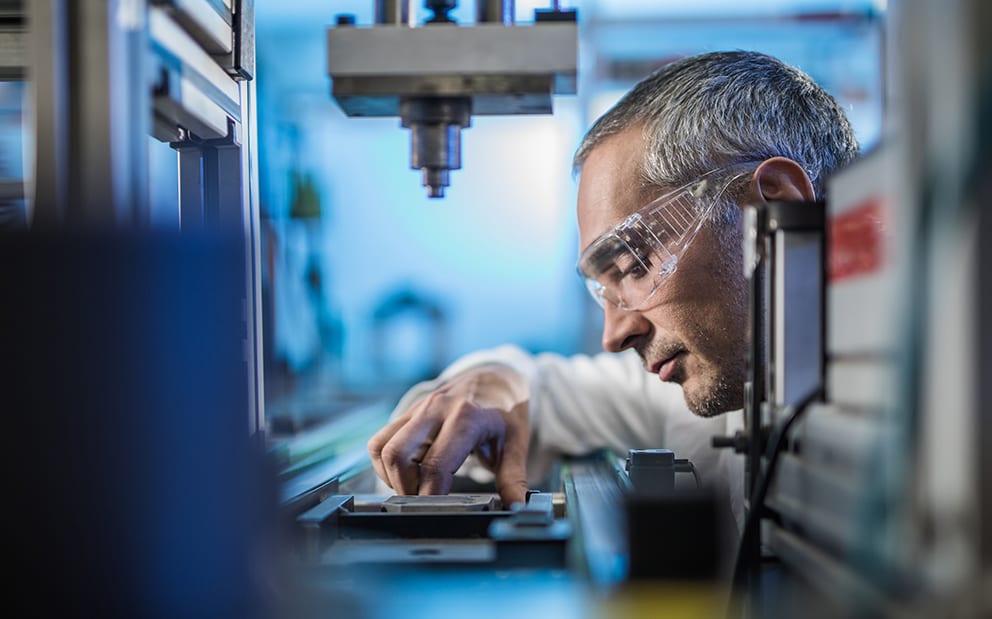Ireland has long been known for a high level of innovation and entrepreneurship, and now a fund worth millions of euro looks set to bring this innovation to a whole new level by investing in long-term projects that have the ability to make a significant global change within an industry.
The Disruptive Technologies Innovation Fund (DTIF) was established under Project Ireland 2040 and is run by the Department of Business, Enterprise and Innovation with administrative support from Enterprise Ireland. Call 1 in 2018 awarded €75 million in state funding to 27 collaborative projects covering the health, food, ICT and manufacturing sectors.
Call 2, in 2019, resulted in 16 collaborative projects sharing €65 million, covering life sciences, medical devices, ICT, artificial intelligence, blockchain, manufacturing and environmental sustainability, including in the waste and energy sectors. This brings the total State funding awarded to industrial research projects under the two Calls of DTIF to €140 million across 43 projects with 159 project partners.
Emerging therapies
One area that has benefitted from DTIF investment has been cell and gene therapy, with four company-led projects receiving a total of €25.5 million. One of these projects is led by Cellix Ltd, a company providing high throughput cell analysis and sorting platforms for cell-based assays. Cellix and its consortium partners in Trinity College Dublin and the National University of Ireland Galway’s Regenerative Medicine Institute were awarded €3.4 million for developing a Microfluidic Gene Transfection Cell Analysis and Sorting Platform (GTCASP).
“The difference with DTIF compared with other funding in Ireland is the funding amount and its long-term nature,” explains Vivienne Williams, CEO and co-founder of Cellix Ltd. “Before, we would only have been able to apply for a grant that funds a few months’ work, but with DTIF, we have three years, which allows us to plan and produce a really good body of work from a scientific standpoint. Historically, for a long-term project such as this, we would have had to apply for a European grant, such as those under the European Commission Horizon 2020. These grants require us to work with a minimum of three partners in three different member states.
Streamlined approach
“DTIF is the first fund that allows us to work with Irish researchers on a project of this scale; the logistics even of just being in the same country as your researchers means that we can work much faster and interact so much more as our skillsets are extraordinarily complementary. Eight months in, we have already produced a great body of really interesting data.” said Williams.
International collaboration
The project led by Cellix stemmed from work carried out over 2017 and 2018, when Cellix harnessed collaborations with international partners to develop a label-free cell analysis and sorting platform. Cellix’s technology can now be used to identify, analyse and sort cells without compromising their biological function, avoiding the use of fluorescent dyes or other potentially disruptive labels. The DTIF funding will allow the technology already developed to be integrated into a new platform and validated for transfection capabilities.
This platform comprises a microfluidic chip through which cells from patients or donors can be characterised, sorted and can be subsequently genetically modified and sorted again. The GTCASP offers a fully automated, closed system in cell manufacturing for gene therapy. The goal is for this platform, when developed to become a standard in the area of gene therapy, therefore bolstering Ireland’s reputation for innovation in the area of cell manufacturing and gene therapy.
Commercial focus
“We’re about eight months into the project and already we’ve generated some really interesting results, which I’m discussing with potential commercial partners,” says Vivienne. “Just before we started the project, I visited Bio International in the US and met with a number of different companies developing cell therapies; the feedback was very positive and they want to be kept informed of progress and data when it’s available so it’s a very good start in gaining traction with potential commercial partners.”
Having this level of commercial activity so early in a project helps keep research on track and relevant to industry.
“Industrial research is an essential part of the project so we need to constantly talk with industry partners who may want to license or buy the technology.” said Williams. “We need to continually validate what we’re doing with the market.”
Home-grown talent
The potential for Irish researchers to develop projects that disrupt and revolutionise an industry is high, adds Vivienne. “The quality of the research is so important; without good-quality research, we can’t come up with a good-quality product. To be blunt, we wouldn’t have applied for DTIF if we didn’t think Irish researchers could produce the results we need. Ireland really punches above its weight in terms of innovation; we’ve really become known for it now.”
For more information and call dates for the Disruptive Technologies Innovation Fund visit the Department of Business, Enterprise and Innovation website.



